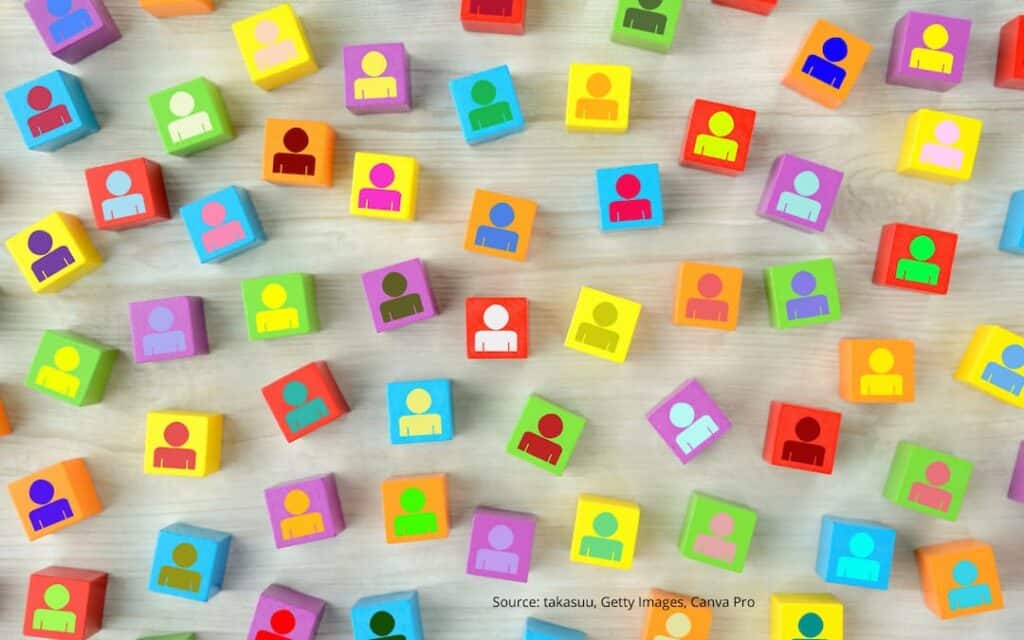Have you ever felt at odds with the world around you? Perhaps you felt out of place and found yourself analyzing every decision that led to that situation. This emotional discomfort typically emerges when friction occurs between core values and perspectives you identify with and the introduction of new values, beliefs, customs, and viewpoints. And when that tension becomes so uncomfortable that you begin to question who you are, many would say you are experiencing an identity crisis.
It is important to note that while questioning who you are can cause discomfort, an “identity crisis” is not a medical or mental health condition. Questioning our identity is normal and expected as we move through the various stages of our lives. It only becomes a problem when it goes unaddressed and causes other health issues (like anxiety, stress, or depression). So, what is an identity crisis, and what can you do about it before it becomes a concern?
What Is Identity?
If you look up the definition of identity, you will see that the first interpretation of the word focuses on the unique characteristics that define you. Interestingly, the second definition emphasizes affinities or similarities between you and the world around you. So, the first interpretation centers on the individual, specifically the individual values, beliefs, experiences, and characteristics that form within. At the same time, the second acknowledges that we are social creatures that inherit and internalize the values, beliefs, and norms of the world around us.
I would argue that the second definition of identity is where an identity crisis emerges. That is because our sense of identity doesn’t spontaneously develop in isolation. Instead, it constantly evolves in response to the world around us, creating misalignment opportunities.
What Is an Identity Crisis?
As we move through life, we encounter situations that confront the foundation of our identity, primarily the values, beliefs, and sense of who we are in relation to the world around us. These moments tend to happen when we gain a new perspective on an issue, contemplate the significance of our existence, or experience a major life event.
For example, we might run into new beliefs, traditions, religions, or customs that cause us to question our identity during educational, travel, or work experiences. This can also occur when facing a significant professional decision or at the beginning or end of a relationship. Other circumstances that can cause unrest include graduation, retirement, or any birthday that triggers a quarter-life or midlife crisis (which is essentially an identity crisis).
Depending on how we view the situation, these moments can surface strong negative emotions that one might say are signs of an identity crisis, such as fear, regret, sorrow, shame, or anger. But they can also trigger positive emotions like joy, wonder, and excitement. And either experience can stir up questions.

Rethinking an Identity Crisis
Those who study identity learn about psychologist Erik Erikson’s theoretical stages of psychosocial development. Erikson believed that we move through eight stages of development during our lives and that a failure to “complete” the developmental objective of a stage is what leads to an identity crisis.
Erikson’s work was vital because it provided a framework for identifying tension. But it also reflected 20th-century thinking, which assumed identity was binary (either you’re experiencing this or this). Whereas today we see identity as emergent and, in some cases, fluid. Awareness, language, and research are also emerging.
We live in a dynamic, multidimensional world where globalization and an overabundance of information influence our thinking. Furthermore, the lines between our private and public lives have blurred, from employers asking us to show up as our “authentic selves” to social media tracking and sharing our every move. Therefore, we must adopt a more dynamic view of identity.
Most traditional models present identity development in linear stages, grids, or concentric circles. When Erikson proposed his theory, few people experienced cultures and systems beyond their immediate grasp. Now, we can access a vast array of information, cultures, societies, and systems that can help shape identity.
Many of us conform to eliminate the tension of questioning our identity because we crave a sense of belonging. But when fitting in means that we suppress our identity and deny ourselves a complete and compassionate understanding of who we are, we remain unsatisfied. And that is what creates anxiety, stress, and depression – conditions that can damage our physical and mental health. So, to adapt to this new era, we must accept new approaches to understanding and expressing our unique identities.
Recognizing the Signs of an Identity Crisis
I often ask my clients to describe how they feel when grappling with their identity, and I’ve noticed some commonalities in their phrases. Below are examples of what they say:
- I experienced a deep sense of discomfort.
- I had a feeling that the world was no longer the same.
- It felt like a looming sense of uncertainty.
- I got the sense that this was a problem without an immediate solution.
If this sounds familiar, you may be experiencing a conflict between your identity and how you believe you should live your life.
However, keep in mind that even if you know that you are experiencing a disconnect in this area, emotional distress can occur when examining core elements of your identity. The process requires that you also look at your identity’s cultural and contextual contributors and challenge your thinking to pursue positive change. And even positive change can be difficult.
Tips for Resolving a Crisis of Identity

How can you move forward toward resolving an identity crisis? Below are a few tips to guide you through this process:
- Awareness Is Crucial
When seeking change in any area of your life, gaining awareness is always the first step. So, if you are reading this blog post and believe it pertains to your situation, you are already on your way. - Practice Compassion for Yourself
In addition to becoming aware, I would ask you to remember that questioning your identity is a normal developmental process. It happens to everyone at various points in their lives, and that tension we feel is an expected part of growth. - Change Can Occur Incrementally
The desire to belong is a significant driver of identity, yet belonging doesn’t have to be binary. In other words, resolving identity concerns doesn’t mean you have to blow up your entire world. Instead, you can choose how much you want to remain affiliated with particular groups and make changes slowly. - Find Support You Can Trust
Talking about what you’re experiencing as you go through an identity crisis is essential. Find a resource you trust, such as a friend, family member, or coach. And if you feel extreme stress, anxiety, or depression, seek help from a mental health professional to work through your feelings. Or, get medical advice, diagnosis, or treatment if you believe the situation affects your physical health.
The Bottom Line
In my view, it is not a crisis when we question our identity. It’s a budding awareness, awakening, growth, and revelation, and you have a choice in how you want to deal with this. Many would suggest that the goal is to eliminate the tension, but I think that’s short-sighted.
I would argue that the real goal is to determine the steps you can take in service of alignment and discovery. And I would recommend that you surround yourself with people who will support you through this journey. You are welcome to explore my site further and help yourself to my downloadable resources for additional information.





